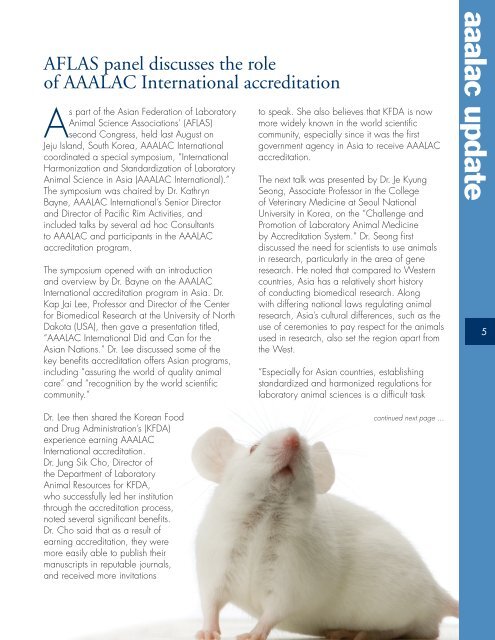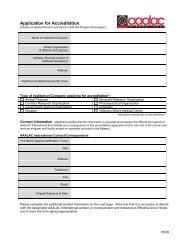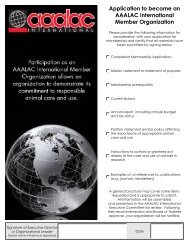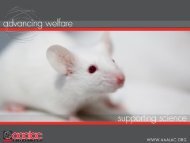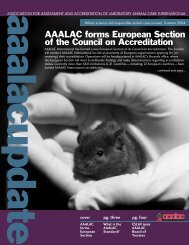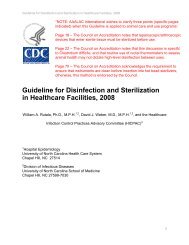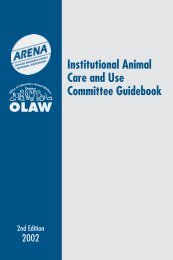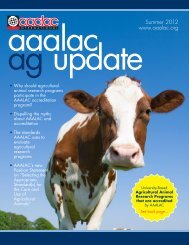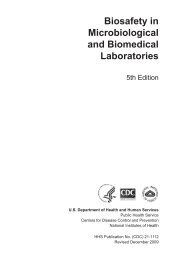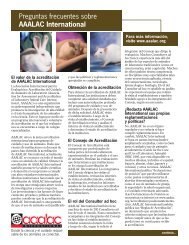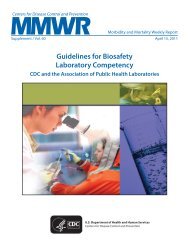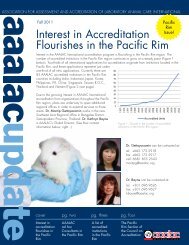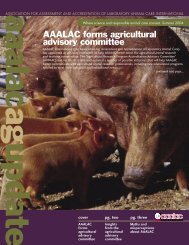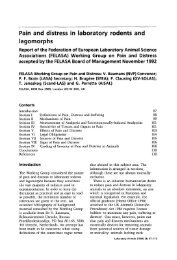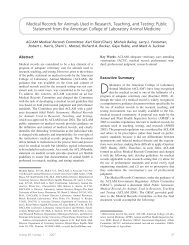High-resolution PDF - Aaalac
High-resolution PDF - Aaalac
High-resolution PDF - Aaalac
- No tags were found...
Create successful ePaper yourself
Turn your PDF publications into a flip-book with our unique Google optimized e-Paper software.
AFLAS panel discusses the roleof AAALAC International accreditationAs part of the Asian Federation of LaboratoryAnimal Science Associations’ (AFLAS)second Congress, held last August onJeju Island, South Korea, AAALAC Internationalcoordinated a special symposium, “InternationalHarmonization and Standardization of LaboratoryAnimal Science in Asia (AAALAC International).”The symposium was chaired by Dr. KathrynBayne, AAALAC International’s Senior Directorand Director of Pacific Rim Activities, andincluded talks by several ad hoc Consultantsto AAALAC and participants in the AAALACaccreditation program.The symposium opened with an introductionand overview by Dr. Bayne on the AAALACInternational accreditation program in Asia. Dr.Kap Jai Lee, Professor and Director of the Centerfor Biomedical Research at the University of NorthDakota (USA), then gave a presentation titled,“AAALAC International Did and Can for theAsian Nations.” Dr. Lee discussed some of thekey benefits accreditation offers Asian programs,including “assuring the world of quality animalcare” and “recognition by the world scientificcommunity.”to speak. She also believes that KFDA is nowmore widely known in the world scientificcommunity, especially since it was the firstgovernment agency in Asia to receive AAALACaccreditation.The next talk was presented by Dr. Je KyungSeong, Associate Professor in the Collegeof Veterinary Medicine at Seoul NationalUniversity in Korea, on the “Challenge andPromotion of Laboratory Animal Medicineby Accreditation System.” Dr. Seong firstdiscussed the need for scientists to use animalsin research, particularly in the area of generesearch. He noted that compared to Westerncountries, Asia has a relatively short historyof conducting biomedical research. Alongwith differing national laws regulating animalresearch, Asia’s cultural differences, such as theuse of ceremonies to pay respect for the animalsused in research, also set the region apart fromthe West.“Especially for Asian countries, establishingstandardized and harmonized regulations forlaboratory animal sciences is a difficult taskaaalac update5Dr. Lee then shared the Korean Foodand Drug Administration’s (KFDA)experience earning AAALACInternational accreditation.Dr. Jung Sik Cho, Director ofthe Department of LaboratoryAnimal Resources for KFDA,who successfully led her institutionthrough the accreditation process,noted several significant benefits.Dr. Cho said that as a result ofearning accreditation, they weremore easily able to publish theirmanuscripts in reputable journals,and received more invitationscontinued next page ...


